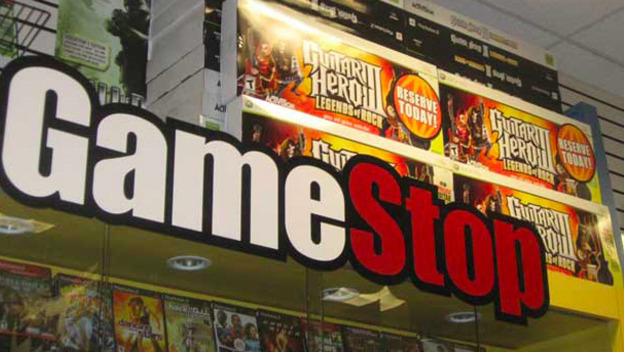As much as I love GameStop—and I do—there’s something particularly self-serving about their posturing regarding the next generation of consoles.
Last week, GameStop spokesman Matt Hodges indicated that the company had been gathering data from their customers, and the results suggested a lack of interest in any console that excluded the ability to purchase used games. “We know the desire to purchase a next-generation console would be significantly diminished if new consoles were to prohibit playing pre-owned games, limit portability, or not play new physical games,” Hodges said.
But this week, in a presentation at the Goldman Sachs Technology and Internet Conference, chief financial officer Rob Lloyd doubled down on Hodges’s statement : “Consumers want the ability to play pre-owned games, they want portability in their games; they want to play physical games. And to not have those things would be a substantial reason for them not to purchase a new console,” he said. “I think it was 60 percent of customers who said they wouldn’t buy a new console [if it blocks used games].”
Now, as much as I would like to see GameStop land on their feet, the notion that 60% of gamers are going to reject the next generation of consoles because they don’t support used games is a little ridiculous.
The fact that GameStop only surveyed their own customer base forces the scientist in me to squirm a little. Obviously, GameStop customers are going to have a preference for used titles. According to Bloomberg , 46% of the company’s gross profit in 2012 came from used video game sales. So, there’s an obvious problem with the sample group.
Plus, it bothers me a little that Rob Lloyd didn’t have the exact statistic on the tip of his tongue. The fact that he said “I think it was 60%” suggests the possibility that the number is actually lower. Which makes the GameStop study all the more dubious.

Like I said, I want GameStop to succeed, but we definitely can’t trust their questionable numbers in this situation. If Sony and Microsoft really to plan to implement a policy that combats used games—which is questionable as well—they’ve obviously got a stack of statistics that contradicts GameStop.
I don’t doubt that GameStop believes that their numbers are accurate, but they’re awfully convenient. Scientists call this a confirmation bias, and it typically means that the data has been corrupted.
Sorry, GameStop. I’m still pulling for you.
 By
By
Josh Engen
News Director
Date: February 15, 2013
